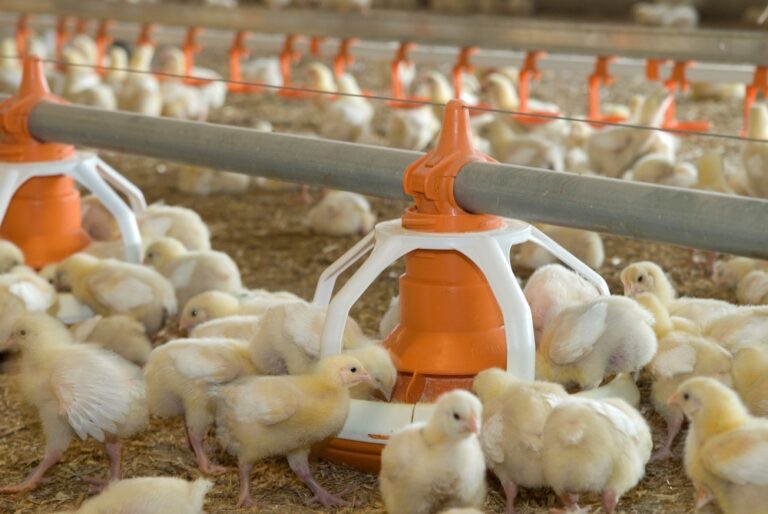Tight margins and ever-rising feed prices make it more important than ever to ensure birds get off to the best start in life
With a relatively short life cycle, supporting broiler chick health from day one should be a key consideration for any poultry producer. John Underwood, senior national account manager for poultry at MSD Animal Health UK, says poor flock health, often caused through poor biosecurity or disease pressure, can have a negative impact on
overall performance and profitability.
“Busy, warm poultry houses provide optimal environments for the transmission of disease and infection, which can wreak havoc on an enterprise’s economics,” he explains. “Therefore, focusing on good biosecurity and implementing a robust disease-prevention programme can pay dividends in the long run, which in the current climate is crucial for poultry producers to maximise profit potential.”
Quite often, when biosecurity is mentioned, we think about implementing practices once the birds have arrived, Underwood points out. But actually, the end of the last flock is the start of the next when it comes to managing and monitoring future crop performance.
“Although biosecurity is crucial throughout the life cycle of the bird to maximise profitability and bird potential,
the cleanout and disinfection process prior to birds entering the sheds is just as important.
“Removing the litter from sheds, completing a deep clean and a robust disinfection programme, then allowing the floors to dry before adding fresh shavings are all measures which, if not carried out correctly, can instigate potential problems for the next crop.”
In recent years, producers have experienced extremely tight turnarounds when moving birds off the farm and bringing new chicks in. But it’s important this shorter window doesn’t compromise a thorough cleanout. Where possible, Underwood suggests removing birds and the litter prior to the washing and disinfection process taking place to reduce the risk of a biosecurity breach.
“Keeping shed doors shut and making sure all vehicles and personnel use wheel and foot dips thoroughly before entering the now clean sheds, are examples of measures producers can adopt to keep biosecurity tight on farm,” he adds.
Once the turnaround period is complete, the next consideration for producers is new chicks being brought on farm. To ensure optimum chick performance, it is important disease-prevention methods are considered from as early as when they are in the hatchery. “Chicks are born with a small degree of immunity derived from their mothers which diminishes over time, leaving birds vulnerable to disease and infection. Disease-prevention tools, such as vaccination, can be given to chicks at the hatchery and on-farm to help build their immunity,” Underwood continues.
“Vaccinations administered at the hatchery offer a number of benefits to both flocks and workers when compared to on-farm vaccinations.
Hatchery vaccinations can be given in ovo and to day-old chicks, offering the ability to boost immunity against disease from the outset. They also make it much easier to guarantee you have vaccinated every bird which, when given on farm, can sometimes be a challenge. In addition to this, automated vaccination systems in a hatchery are less labour intensive, which is particularly useful in this day and age where labour supply is an issue for the sector. Likewise, when it comes to bird welfare, hatchery vaccines will typically incur less stress.”
Underwood concludes by emphasising the importance of making vaccine application as easy as possible. “Reducing stress on birds contributes to their overall health and welfare as well as reducing their vulnerability to common disease challenges. Hatchery vaccinations provide a mass population of birds with protection against diseases at the earliest possible interval, reducing their chances of contracting diseases and infections as they move through their life.”


